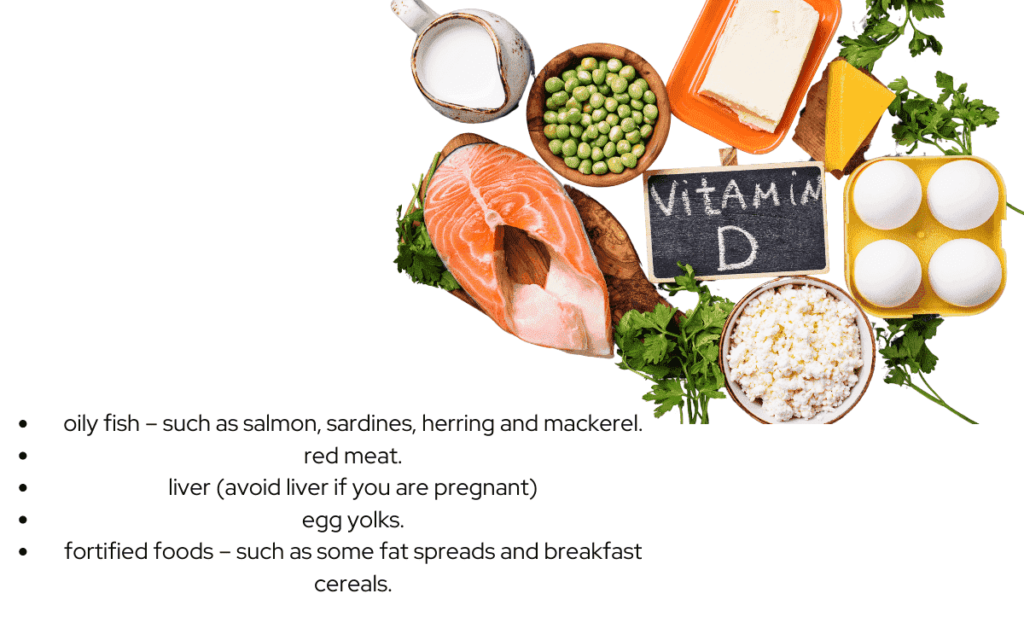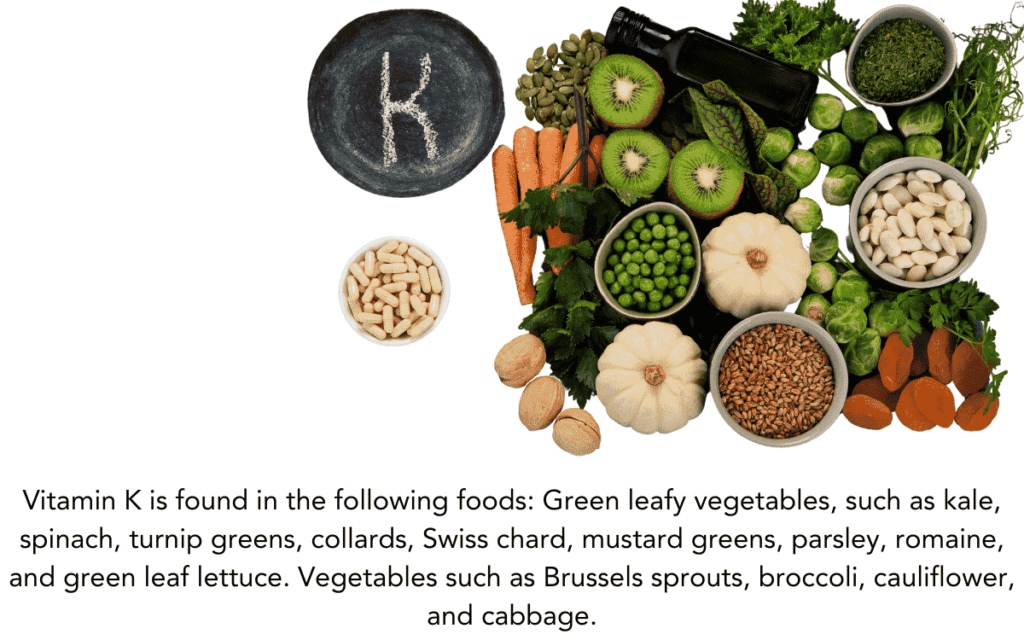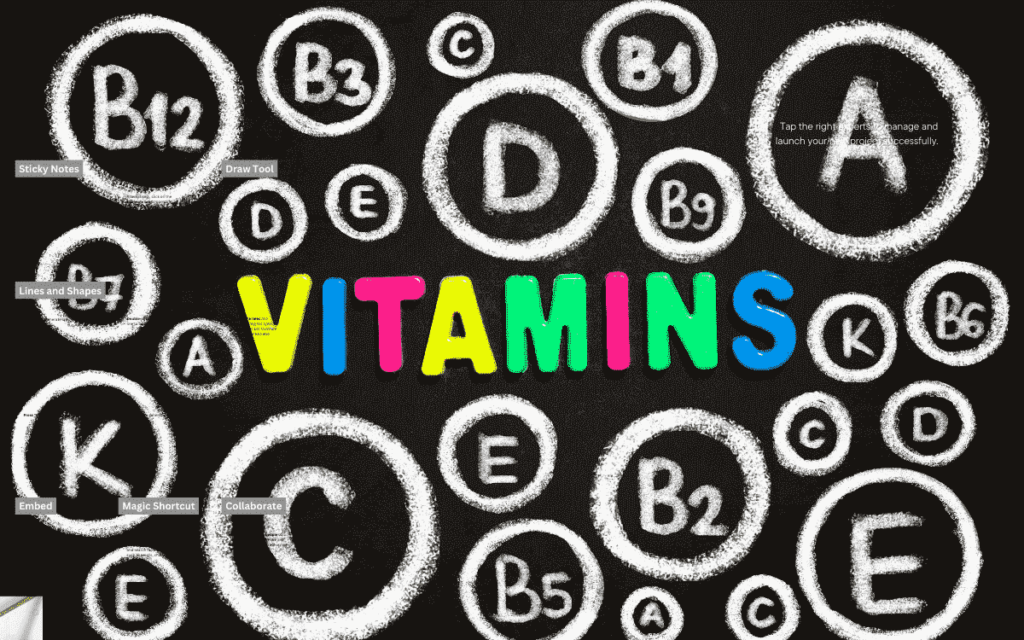Maintaining strong bones and flexible joints is crucial for our daily activities and overall health. Our bones provide structure and protect our organs, while our joints enable movement and flexibility. To keep them in good shape, The Vital Role of vitamins for strong bones and joints health.
Vitamins help maintain bone strong, assist in absorbing important minerals like calcium, and support the repair of joint tissues. In this introduction, we’ll explore how these essential nutrients contribute to the health and strength of our bones and joints.
“Vitamins B, C, and (water soluble) magnesium have been impactful for many who have anxiety and Depression
1 Vitamin D: The Sunshine Vitamin

Functions and Benefits for Bone Health: Vitamin D is crucial for the absorption of calcium and phosphorus from the intestine, which are essential for maintaining strong and healthy bones. It helps in the mineralization of bones and teeth, thus preventing conditions like rickets in children and osteomalacia in adults.
Sources of Vitamin D:
- Sunlight: The primary source of vitamin D is sunlight. When ultraviolet B (UVB) rays from the sun hit the skin, they trigger vitamin D synthesis. However, factors like sunscreen use, time of day, season, and geographical location can affect how much vitamin D your skin can produce.
- Food Sources: Vitamin D is naturally found in very few foods, but some dietary sources include:
- Fatty fish (such as salmon, mackerel, and tuna)
- Beef liver
- Egg yolks
- Cheese
- Fortified foods (such as fortified milk, orange juice, cereals, and yogurt)
Recommended Daily Intake: The recommended daily intake of vitamin D can vary based on age, sex, and specific health conditions. Generally, the recommended dietary allowances (RDAs) in international units (IU) per day are:
- Infants (0-12 months): 400-1000 IU
- Children (1-18 years): 600-1000 IU
- Adults (19-70 years): 600-800 IU
- Adults (>70 years): 800-1000 IU
2. Vitamin C: Collagen Booster

Role in Collagen Synthesis: Vitamin C plays a crucial role in collagen synthesis, which is essential for the health and maintenance of connective tissues, skin, bones, and blood vessels. Collagen is a protein that provides structure and strength to various parts of the body. Vitamin C is needed for the hydroxylation of proline and lysine residues in collagen synthesis. Without sufficient vitamin C, collagen formation is disrupted, leading to issues like impaired wound healing, joint pain, and even scurvy in severe cases.
“Vitamin C’s role in reducing UV-induced photodamage and promoting even skin tone and a glowing complexion categorizes it under ‘Skincare and Beauty’.”
Importance for Joint Health: Vitamin C is important for joint health primarily because it supports the synthesis of collagen, which forms the basis of connective tissues in joints. Adequate collagen production helps maintain the integrity of cartilage, which cushions joints and allows for smooth movement. This is crucial for preventing conditions like osteoarthritis, where joint cartilage deteriorates over time. Vitamin C’s antioxidant properties also help protect joint tissues from oxidative stress and inflammation, further supporting joint health.
Foods Rich in Vitamin C: Vitamin C is abundant in many fruits and vegetables. Some of the best sources include:
- Citrus fruits (oranges, grapefruits, lemons)
- Strawberries
- Kiwi
- Guava
- Bell peppers (especially red peppers)
- Broccoli
- Brussels sprouts
- Tomatoes
- Papaya
- Mango
Including these foods in your diet can help ensure an adequate intake of vitamin C to support collagen synthesis and overall joint health.
3. Vitamin K: Calcium Regulator
Vitamin K plays a crucial role in the regulation of calcium within the body, particularly in enhancing its absorption and promoting bone health. Here are some key points about vitamin K in relation to calcium:
1. Enhancing Calcium Absorption
Vitamin K is involved in the production of proteins that regulate calcium usage in the body. One such protein is osteocalcin, which helps bind calcium to the bone matrix, thereby improving bone mineralization. By supporting osteocalcin production, vitamin K indirectly enhances the absorption of calcium from the diet.
2. Benefits for Bone Density
Adequate levels of vitamin K are associated with improved bone density and reduced risk of fractures. This is partly due to its role in ensuring calcium is properly utilized in bone formation and maintenance. Studies have suggested that vitamin K supplementation can help maintain bone health, especially in older adults at risk of osteoporosis.
Sources of Vitamin K
Vitamin K is found in two main forms:
- Vitamin K1 (Phylloquinone): This form is primarily found in green leafy vegetables such as spinach, kale, broccoli, and Brussels sprouts. It is the most common dietary form of vitamin K.
- Vitamin K2 (Menaquinones): This form is found in animal products and fermented foods, as well as in smaller amounts in some cheeses and in natto, a traditional Japanese food made from fermented soybeans.
Both forms of vitamin K contribute to overall health, with K1 being more prevalent in Western diets and K2 more common in Eastern diets due to specific food choices.

Recommended Intake
The recommended daily intake of vitamin K varies by age and sex but generally ranges from 90 to 120 micrograms per day for adults. It’s important to note that deficiencies in vitamin K are rare but can occur, leading to increased risk of osteoporosis and fractures, among other health issues.
4. Calcium: Foundation for Bones
1. Importance of calcium for bone strength: Calcium is a mineral that plays a crucial role in building and maintaining strong bones. Almost 99% of the calcium in our bodies is stored in our bones and teeth, where it supports their structure and hardness. Throughout our lives, our bodies continually remove small amounts of calcium from our bones and replace it with new calcium, a process essential for maintaining bone strength.
2. Vitamin D’s role in calcium absorption: Vitamin D is essential for the absorption of calcium from the intestine into the bloodstream. Without enough vitamin D, the body is unable to absorb the calcium it needs to maintain strong bones and carry out other important functions. Vitamin D can be obtained through exposure to sunlight as well as from certain foods and supplements.
3. Dietary sources of calcium: Calcium is found in a variety of foods. Some of the best sources include dairy products such as milk, cheese, and yogurt. Other sources include leafy green vegetables (like kale and broccoli), fortified foods (such as fortified cereals and orange juice), nuts (like almonds), seeds (such as chia seeds), and certain types of fish (like salmon and sardines), where you can consume the bones for added calcium.
5. Magnesium: Bone Density Enhancer
Role in Bone Mineralization
Magnesium plays a crucial role in bone health and mineralization. It is an essential mineral involved in the structural development of bones. Approximately 60% of the body’s magnesium is stored in bones, where it contributes to their density and strength.
Magnesium helps regulate calcium transport and absorption, which is vital for bone formation. It also influences the activity of osteoblasts and osteoclasts, the cells responsible for bone remodeling. Therefore, adequate magnesium intake is essential to maintain optimal bone mass and prevent osteoporosis.
Interaction with Vitamin D and Calcium
- Vitamin D: Magnesium is required for the activation of vitamin D in the body. Vitamin D facilitates the absorption of calcium, and magnesium helps convert vitamin D into its active form. Without sufficient magnesium, vitamin D cannot perform its role effectively in maintaining calcium balance and bone health.
- Calcium: Magnesium and calcium work closely together in bone mineralization and skeletal structure. Magnesium helps regulate calcium levels by influencing its absorption and transport to bones. Both minerals are essential for maintaining bone density and preventing bone-related disorders.
Foods High in Magnesium
To ensure an adequate intake of magnesium for bone health, consider including these magnesium-rich foods in your diet:
- Leafy greens: Spinach, kale, and Swiss chard are excellent sources of magnesium.
- Nuts and seeds: Almonds, cashews, peanuts, and sesame seeds are rich in magnesium.
- Whole grains: Brown rice, quinoa, oats, and whole wheat contain magnesium.
- Legumes: Beans, lentils, and chickpeas are good sources of magnesium.
- Seafood: Fish like salmon and mackerel provide magnesium along with omega-3 fatty acids.
- Avocado: A nutrient-dense fruit that contains magnesium.
- Dark chocolate: A delicious source of magnesium, but choose varieties with higher cocoa content for more benefits.
6. Omega-3 Fatty Acids: Joint Lubricators
Omega-3 fatty acids are essential nutrients known for their various health benefits, including their role as joint lubricators and their anti-inflammatory properties. Here are some key points regarding their benefits for joint health and sources:

Omega-3 fatty acids are primarily sourced from fish, such as salmon, mackerel, and sardines.
Benefits for Joint Health:
- Anti-inflammatory Properties: Omega-3 fatty acids, particularly EPA (eicosapentaenoic acid) and DHA (docosahexaenoic acid), have been shown to reduce inflammation in the body. Inflammation is a major contributor to joint pain and stiffness, so consuming omega-3s may help alleviate these symptoms.
- Improved Joint Flexibility: By reducing inflammation, omega-3s can improve joint flexibility and mobility, making movement easier and less painful, especially for individuals with conditions like arthritis.
- Cartilage Maintenance: Omega-3 fatty acids may help maintain the health of joint cartilage, which can deteriorate with age and certain conditions. This can potentially slow down the progression of joint-related diseases.
Sources of Omega-3 Fatty Acids:
- Fatty Fish: Cold-water fish such as salmon, mackerel, trout, sardines, and herring are rich sources of EPA and DHA.
- Flaxseeds and Chia Seeds: These seeds are high in alpha-linolenic acid (ALA), a type of omega-3 fatty acid. However, the conversion of ALA to EPA and DHA in the body is limited.
- Walnuts: They contain ALA and can contribute to omega-3 intake, though in smaller amounts compared to fish.
- Omega-3 Enriched Foods: Some products like eggs, yogurt, and milk may be enriched with omega-3 fatty acids.
- Supplements: Fish oil supplements are available and commonly used to boost omega-3 intake, especially for individuals who may not consume enough through diet alone.
Recommendations:
- Dietary Intake: Aim to include fatty fish in your diet at least twice a week to meet omega-3 requirements.
- Supplementation: Consider fish oil supplements if your diet is lacking in omega-3 fatty acids or if you have specific health concerns related to joint inflammation.
7. Vitamin Supplements for Bone and Joint Health
Supplements for bone and joint health are often considered in the following situations:
- Nutrient Deficiencies: If you have a deficiency in specific vitamins or minerals crucial for bone health, such as vitamin D, calcium, or magnesium.
- Osteoporosis or Bone Diseases: People diagnosed with osteoporosis or other bone diseases may benefit from supplements to support bone density.
- Joint Pain or Arthritis: Certain supplements like glucosamine, chondroitin, or omega-3 fatty acids may help manage joint pain and inflammation.
2. Choosing the Right Supplements
When selecting supplements for bone and joint health, consider the following factors:
- Quality and Purity: Look for supplements from reputable brands that undergo third-party testing for purity and quality.
- Ingredients: Ensure the supplement contains the specific nutrients or compounds known to support bone and joint health. For example, vitamin D3 is preferable over vitamin D2 for bone health.
- Dosage: Follow recommended dosages unless otherwise advised by a healthcare professional. Excessive intake of certain supplements can be harmful.
- Formulation: Some supplements may be more bioavailable in certain forms (e.g., calcium citrate vs. calcium carbonate).
3. Potential Risks and Considerations
Before starting any supplement regimen for bone and joint health, be aware of the potential risks:
- Interaction with Medications: Supplements can interact with medications you’re currently taking. Consult with your healthcare provider, especially if you have underlying health conditions or take other medications.
- Overdose Risk: Certain vitamins and minerals, such as vitamin D and calcium, can be harmful in high doses. Follow recommended daily allowances.
- Quality Concerns: Not all supplements are created equal. Poor-quality supplements may contain contaminants or inadequate amounts of active ingredients.
- Individual Variability: Everyone’s needs for supplements vary based on age, health status, diet, and lifestyle. What works for one person may not be suitable for another.
8. Lifestyle Tips for Strong Bones and Joints
Regular Exercise: Engage in weight-bearing exercises like walking, jogging, dancing, or resistance training. These activities help build and maintain bone density, as well as strengthen muscles that support joints.
Balanced Diet: Ensure your diet includes calcium-rich foods such as dairy products, leafy greens, and fortified foods. Vitamin D is also crucial for bone health, so include sources like fatty fish and fortified cereals. Protein is essential for muscle health and joint support, so include lean meats, legumes, and nuts in your meals.
Maintain a Healthy Weight: Being overweight can strain joints, especially in the knees, hips, and lower back. Maintain a healthy weight through a balanced diet and regular exercise to reduce the risk of joint problems.
Good Posture: Practice proper posture to prevent unnecessary strain on your joints, particularly in the spine, hips, and knees. This can help reduce the risk of developing joint pain and stiffness over time.
Stay Hydrated: Water is essential for joint lubrication and overall bodily function. Aim to drink enough water throughout the day to keep joints functioning smoothly.
Avoid Smoking and Limit Alcohol: Smoking can interfere with calcium absorption and decrease bone density, while excessive alcohol consumption can weaken bones and increase the risk of fractures.
Protect Your Joints: When engaging in physical activities or sports, use protective gear such as knee pads or wrist guards to prevent injuries that could weaken joints over time.
Regular Check-ups: Visit your healthcare provider regularly for check-ups and screenings to monitor bone density and joint health, especially if you have a family history of osteoporosis or arthritis.
9. Conclusion
In conclusion, vitamins play a crucial role in maintaining optimal bone and joint health throughout life. Here’s a recap of their importance and some encouragement for incorporating them into your daily life:
Vitamins such as Vitamin D are essential as they aid in calcium absorption, which is vital for bone strength and density. Vitamin K supports bone mineralization and helps prevent calcium buildup in arteries, which can contribute to cardiovascular health. Vitamin C is important for collagen synthesis, which is a key component of cartilage and bone tissue. Vitamin B12 and folate are necessary for bone cell metabolism and overall bone health.
